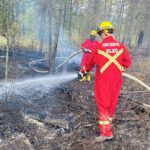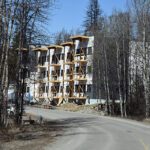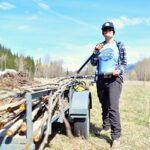Home »

BCWF fears cut in wildlife allocation
Changes to B.C.’s Wildlife Allocation Policy proposed by the Guide-Outfitters Association of B.C. (GOABC) would dramatically reduce residents’ access to wild game and increase the number of licences sold to foreign big game trophy hunters, according to the B.C. Wildlife Federation (BCWF).
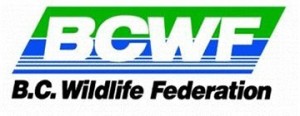 This proposed change could result in 5,000 fewer hunting licences going to B.C. residents, the BCWF charges.
This proposed change could result in 5,000 fewer hunting licences going to B.C. residents, the BCWF charges.
Most jurisdictions across North America give foreign hunters five to 10% of the harvestable surplus of wildlife. The changes proposed by the GOABC, which represents 210 outfitters who have exclusive rights to guide trophy hunters, would give foreign hunters up to 40% of specific game species such as mountain sheep, goat and bear, and up to 25% of moose and elk, the BCWF warns.
In 200,7 a new Wildlife Allocation Policy was established in B.C. in an attempt to fairly determine the number of hunting licences allocated, which gave foreign hunters the best share of the available hunting licences. Even then, the Guide Outfitters Association of B.C. started vigorously lobbying the government to amend or scrap the new wildlife policy.
“Proposed changes to the Wildlife Allocation Policy are inconsistent with standard practices in other jurisdictions across Canada and in the United States,” said George Wilson, President of the B.C. Wildlife Federation, which represents 45,000 conservationists. “There is no justification for these changes and they are not supported by B.C.’s resident hunters.”
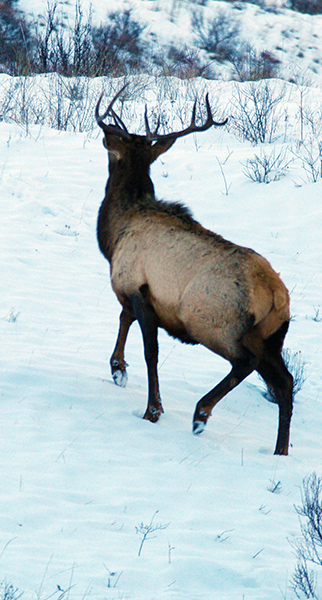 Over the last 10 years, the number of B.C. hunters has grown by 20%, increasing from 84,000 to over 102,000. Over the same period, the number of foreign trophy hunters coming to B.C. has dropped from 6,500 to 4,500, a decline of 30%.
Over the last 10 years, the number of B.C. hunters has grown by 20%, increasing from 84,000 to over 102,000. Over the same period, the number of foreign trophy hunters coming to B.C. has dropped from 6,500 to 4,500, a decline of 30%.
Hunting has become increasingly popular in B.C. as more families shy away from industrially produced meats in favour of organic wild game, the BCWF points out.
This sustainable food movement is particularly popular in northern communities, central B.C. and even the Lower Mainland where people are depending on hunting to fill their freezers and feed their families.
B.C. resident hunters spend over $230 million a year in local communities on hunting related activities and contribute $9 million a year towards conservation work through license fees. Resident hunters also contribute through donations to conservation organizations such as The Nature Trust, and Ducks Unlimited as well as volunteer for conservation activities. B.C. Wildlife Federation members alone dedicate more than 300,000 hours annually to fish, wildlife and habitat conservation projects across the province.
Moose is the most sought after species by B.C.’s resident hunters. In many areas, demand exceeds supply and hunters are placed on a Limited Entry Hunt (LEH) lottery to ensure sustainability.
Approximately 70,000 B.C. hunters apply for 13,000 LEH licenses each year, meaning only one in five hunters get to hunt moose annually.
Foreign hunters do not need to apply for a LEH license, and can hunt annually, taking moose licenses from approximately 3,000 B.C. hunters each year. The proposed changes would see even more British Columbians go without an opportunity to hunt moose.
Over the past two decades, there has been a steady erosion of hunting licences available to B.C. resident hunters in favour of foreign hunters. For example, non-resident hunting licences for moose in the Kootenay Region (4) have gone from six percent in 1991 to 21 percent in 2012, leaving hundreds of Kootenay residents without the opportunity to hunt moose.
“B.C. residents who depend on hunting to help sustain their families should be supported by provincial government policy,” said Jesse Zeman, a BCWF director, who hunts with his whole family. “The overriding priority for all hunters is conservation, ensuring there is enough game available for First Nations, and then fulfilling the hunting needs of B.C. families. Any changes to the Wildlife Allocation Policy should meet the needs of the majority of British Columbians who enjoy the outdoors, spend time with friends and family, and hunt for food.”
The BCWF is calling on the BC government to fairly legislate wildlife allocations. The organization does not support giving away more than 10% for moose and elk, and 25% of mountain goat, sheep, and bears to foreign trophy hunters.
Ironically, this gives non-resident hunters the best deal in North America. Several jurisdictions across North America have already set wildlife allocation in law. Saskatchewan limits non-resident moose hunters to four percent of the harvestable surplus. Alberta sets non-resident allocations between two to seven percent with a maximum of 10%. Washington State has limited non-resident wildlife allocations to approximately five percent.
“Resident hunters firmly believe any policy changes should reflect the best interests of the majority of British Columbians who depend on hunting as a sustainable, healthy food source,” said Wilson. “Our organization is committed to working with the government to protect wildlife and ensure equitable distribution of this resource.”
Kootenay East MLA Bill Bennett says hunters in British Columbia must move beyond the long-running allocation issue.

“It is time that we bury the hatchet on the allocation issue and move on to other important issues. Minister (Steve) Thomson and I have been working towards a new model for wildlife management based on the BC Freshwater Fisheries Society model. Both the BCWF and the Guide Outfitters Association of B.C. (GOABC) have asked government to consider this new approach that would increase wildlife inventories. And there is much work to be done on policies such as the BC Hydro Fish & Wildlife Compensation Program, which I am currently working on with the BCWF,” he told e-KNOW, adding he will support the proposed changes.
“We should never forget that us hunters are in a minority in society. Most British Columbians do not hunt. They live in cities and do not understand why we hunt and in many cases do not support our right to hunt. The old battle between resident hunters and guides is one that makes the anti hunting crowd very happy. They see us divided and therefore, easier to conquer,” cautions Bennett, B.C. Minister of Energy and Mines and Minister for Core Review.
“Over the past 14 years, I had a Private Members Bill passed that supports hunting. I’ve fought to keep the grizzly hunt, helped local clubs secure Crown land for shooting ranges, supported reasonable access against those who would shut us out of the bush and spoken up in Victoria hundreds of times in support of rural values. I hope these changes to the allocation policy are not enough for Kootenay hunters to forget my loyalty and commitment over 14 years. I believe the new policy is fair and balanced and I will be supporting the minister,” said the Life Member of the Rocky Mountain Elk Foundation.
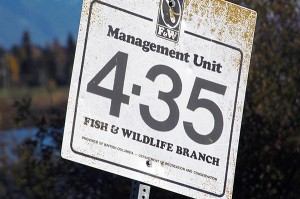 As someone who has hunted since childhood and an MLA who has been awarded a Life Membership in the BC Wildlife Federation, plus awards from the BC Trappers and the BC Guide Outfitters, Bennett said he is well aware “of the very controversial and very difficult wildlife allocation issue. I’ve been trying to help a succession of provincial ministers find a fair compromise since 2003. Minister Steve Thomson has found that fair compromise and frankly, the fact that both resident hunters and guide outfitters are dissatisfied with the decision is a signal that he has found a reasonable middle ground. Many guides will be unhappy with the allocation policy. The policy is NOT what the GOABC asked for nor what the BCWF asked for. In Region 4, guide allocation goes up for only goat (four percent) and grizzly bear (14%).”
As someone who has hunted since childhood and an MLA who has been awarded a Life Membership in the BC Wildlife Federation, plus awards from the BC Trappers and the BC Guide Outfitters, Bennett said he is well aware “of the very controversial and very difficult wildlife allocation issue. I’ve been trying to help a succession of provincial ministers find a fair compromise since 2003. Minister Steve Thomson has found that fair compromise and frankly, the fact that both resident hunters and guide outfitters are dissatisfied with the decision is a signal that he has found a reasonable middle ground. Many guides will be unhappy with the allocation policy. The policy is NOT what the GOABC asked for nor what the BCWF asked for. In Region 4, guide allocation goes up for only goat (four percent) and grizzly bear (14%).”
The most important fundamentals of the final allocation policy are as follows, Bennett noted:
* Supports sustainable, healthy populations of wildlife;
– Resident hunters have priority and retain majority of hunting opportunities;
* Regional success factors no longer used to support more tags for guides;
* Regional managers will no longer have discretion to change regional allocation splits;
* Unallocated territories will not be direct-granted to guides and will remain open for resident hunting;
* Although guide allocations go up slightly (except moose which goes down) there is very little difference to resident hunters in terms of actual opportunities and this slight increase to guides is just enough to help some of them stay in business.
The following species in Region (Management Unit) 4 are subject to allocation policy:
– Sheep – GOS (full curl);
– Goat – 65% resident, 35% guide
– Bull moose – 80% resident, 20% guide
– Grizzly – 60% resident, 40% guide.
The BCWF is British Columbia’s largest and oldest conservation organization with over 45,000 members passionately committed to protecting, enhancing and promoting the wise use of the environment for the benefit of present and future generations. Visit www.bcwf.bc.ca for more info.
Ian Cobb/e-KNOW

